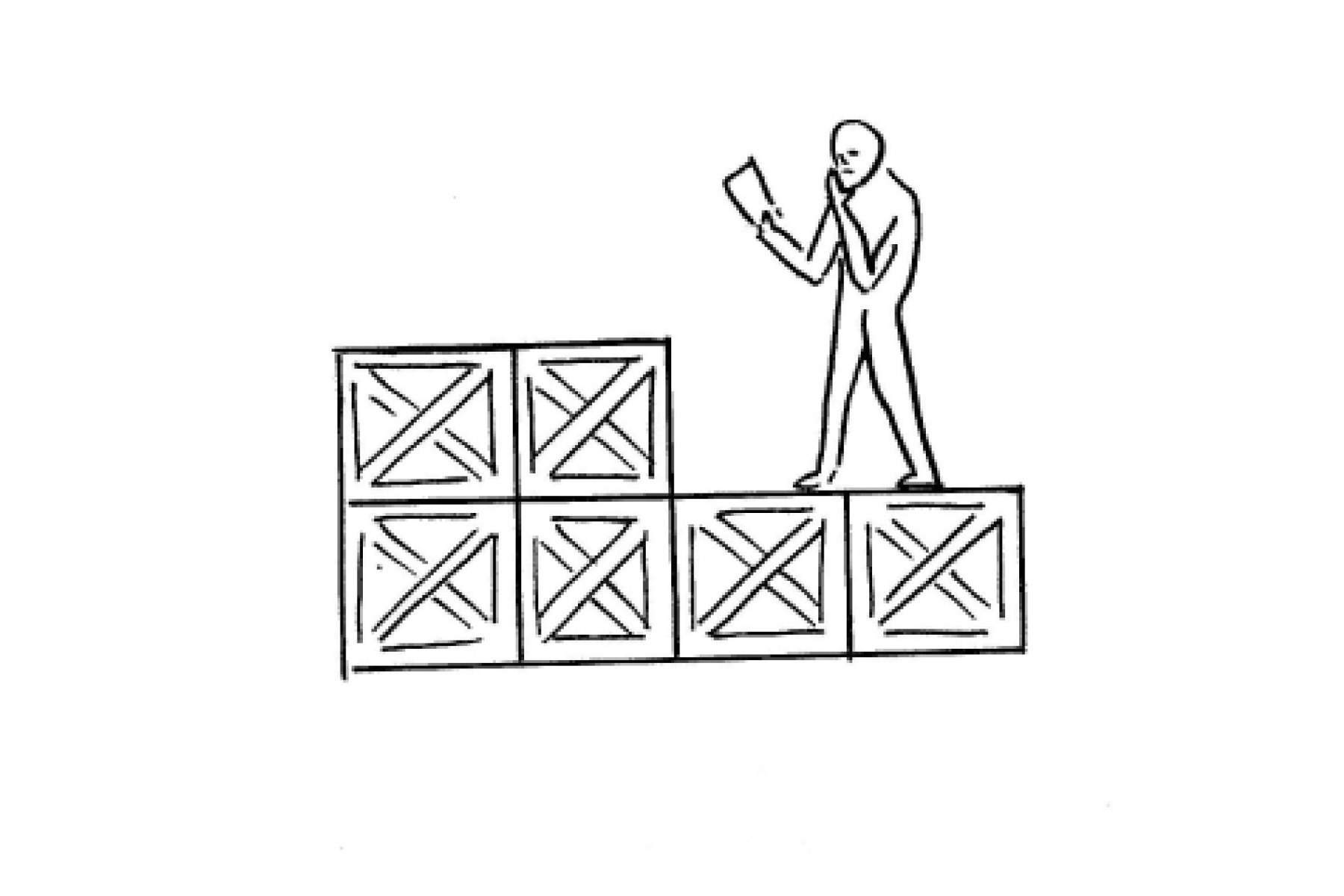
The Context
Good companies have good inventory management. Executing this process correctly is vital to making informed decisions and understanding what kind of leverage you have as a business. It's a worthwhile activity for every enterprise to do. Even if you don't have a warehouse, and even if you're the only employee, executing a regular physical count of your assets is still critical for growth. From a knowledge management standpoint, you don't want to forget about the assets you've accumulated over the past year. Otherwise you'll miss out on future opportunities.
The Tool
Walk The Factory Floor
WALK THE FACTORY FLOOR -- Creating the ritual of an established parcel of structured curiosity, whereby you casually and thoughtfully peruse every idea you’ve recently accumulated.
Keep close track of the quality of your creative inventory. It's definitely tedious, but it's also rewarding. You remind yourself how far you've come, which makes you feel proud and satisfied, and you inspire yourself to go even farther in the future, which makes you feel excited and confident. Who knew something as mundane like inventory management could be so emotionally beneficial?

Scott's Take
When my dad owned a wholesaling company, once a year their staff would have inventory day. The warehouse operations building would close for a day in the summer, everyone would show up wearing old clothes and boots, and the staff would conduct a physical count of all their skus. People dreaded inventory day. The work was tedious, the weather was brutal, and there were literally millions of items in hundreds of thousands of square feet to count. But to me, it sounded like heaven. There was something fascinating about conducting a physical count of all those boxes that captured my imagination. Most years, my mom would take my brother and me to the warehouse on inventory day for lunch. We would watch all the dirty, sweaty, frenzied employees rushing about with clipboards and scanners, while my dad walked around trying to keep the peace. The energy was invigorating. And more than thirty years later, that inspiring image of inventory day is still emblazoned on my mind.
The Rest
This tool will help you find work you've done and think, wow, we should do more with that. Build it out more robustly. Productize it a bit. Maybe that's the seed for something bigger that's just waiting to be watered. That's leverage. Each of us already possesses powerful assets. It's simply a matter of taking inventory, and then using that data as a jumping off point for the next great opportunity. How can you leverage something if you forgot that you had it?
The Benefits
Turn underused inventory into a profit center
Reacquaint yourself with valuable ideas you forgot about
Use existing intellectual assets as jumping off points for new opportunities
Make more informed decisions about what projects to tackle next